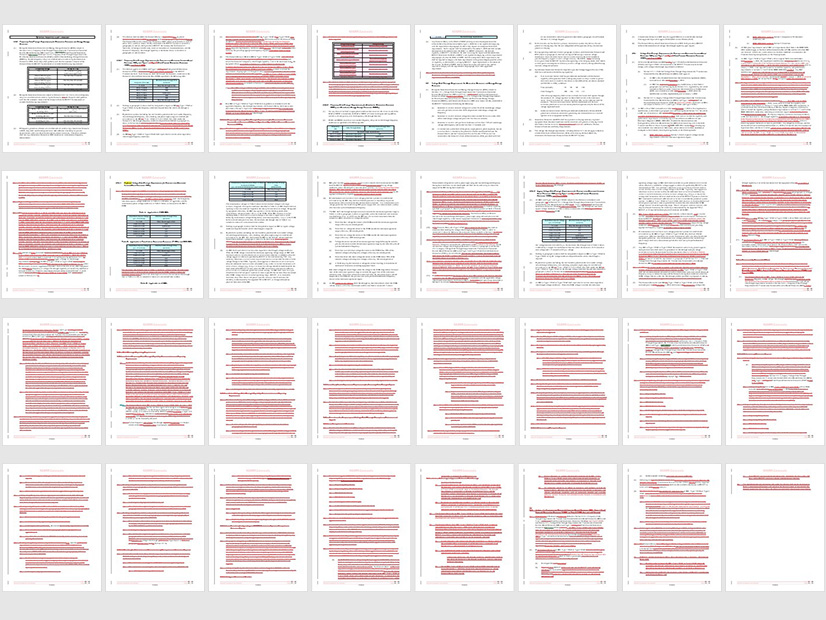ERCOT stakeholders and staff came to an agreement last week on a rule change that imposes ride-through voltage requirements on inverter-based resources, a result of more than a year’s worth of back-and-forth redlined comments and negotiations.
During a special June 7 conference call, the Technical Advisory Committee endorsed a change to the Nodal Operating Guide (NOGRR245) that aligns ERCOT’s rules with NERC reliability guidelines and the most relevant parts of the Institute of Electrical and Electronics Engineers’ standard for IBRs interconnecting with the grid.
ERCOT’s Board of Directors remanded the NOGRR back to TAC in April, directing the language — approved by the committee over staff’s objections — be modified to address staff’s reliability concerns. (See ERCOT Board of Directors Briefs: April 22-23, 2024.)
A pair of IBR-related voltage disturbances in West Texas in 2021 and 2022, dubbed the Odessa Disturbances, only added urgency to the measure’s eventual passage. (See NERC Repeats IBR Warnings After Second Odessa Event.)
TAC has held a workshop and two conference calls devoted to NOGRR245 since April.
Staff said the revisions in their latest comments, submitted June 5, addressed their concerns and reflected TAC discussions offering compromise on generation interconnection agreements, requiring all IBRs maximize up to the equipment’s full capability. Staff said they will support an exemption process allowing them to assess reliability risk and costs during a review and a one-time exemption process with no after-the-fact exemptions for performance failures or later discovery.
However, staff said they would not support a “subjective commercially reasonable” standard and would only support considering cost during the exemption process if the solution is “clear, objective, quantifiable and repeatable regardless of technology, unique commercial characteristics or plant age.”
(“Commercially reasonable” is defined as terms “conducted in good faith and in accordance with commonly accepted commercial practice.”)
TAC accepted the comments but added gray-box language with potential modifications that would enable entities to meet the applicable ride-through requirements when they have not yet added a “technically feasible” change. The modifications are for those entities where the upgrade costs are less than 40% of the full, in-kind replacement cost of a plant’s inverters or turbines and converters.
Members accepted a friendly amendment to extend the gray-box language’s effective date from August to March 2025.
Speaking for the ad hoc “joint commenters” stakeholder group, Eric Goff said the group’s latest comments represent a “serious and good faith commitment” to making the upgrades. He said their comments have been updated to allow for immediate implementation of the standards and to decouple software and more expensive hardware ride-through considerations.
“We think that this maximization procedure meets ERCOT’s goals. … I think we have the same intention and desires or very similar intentions and desires,” Goff said.
TAC endorsed the NOGRR in an 18-1 vote, with 10 abstentions. Demand Control 2, a member of the retail segment, cast the lone opposing vote. The municipal, retail and power marketing segments accounted for nine of the abstentions.
Demand Control 2 CEO Chris Hendrix told RTO Insider that the joint commenters’ proposal was not posted until the night before the conference call and didn’t allow enough time for full consideration. He also said ERCOT’s 40% threshold for replacement costs was arbitrary, “extremely” high, and didn’t consider the life of generating units or existing contracts.
“Either the threshold should be a lot lower or some aspect of commercial reasonableness added,” he said.
Hendrix motioned to table the change. However, he was unable to secure a second.
TAC members did not celebrate the NOGRR’s passage, although American Electric Power’s Richard Ross did promise to award Luminant’s Ned Bonskowski with one of his Gold Star awards for staying up until 2 a.m. June 7 to compare the ERCOT and joint commenters’ proposals.
“I’ve never received a higher honor in my professional career,” Bonskowski said.
“Don’t forget to put that on your performance review,” Ross replied.




